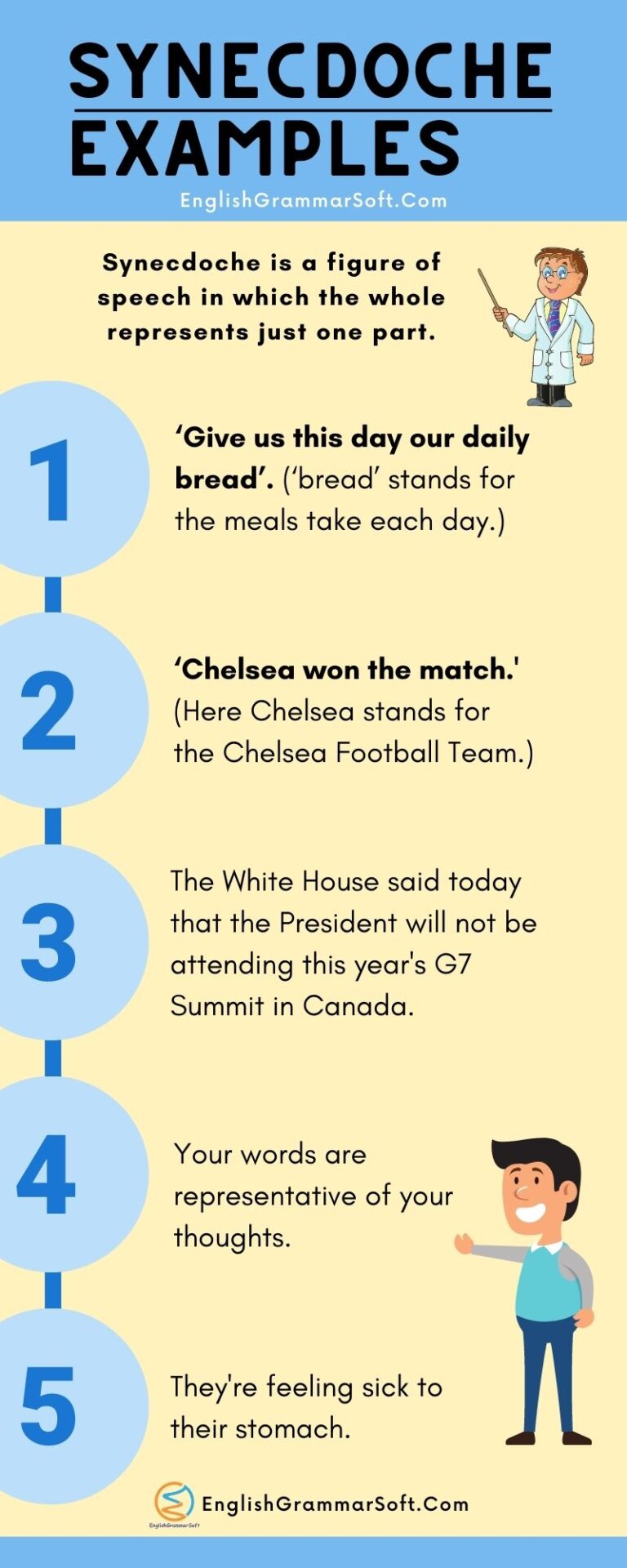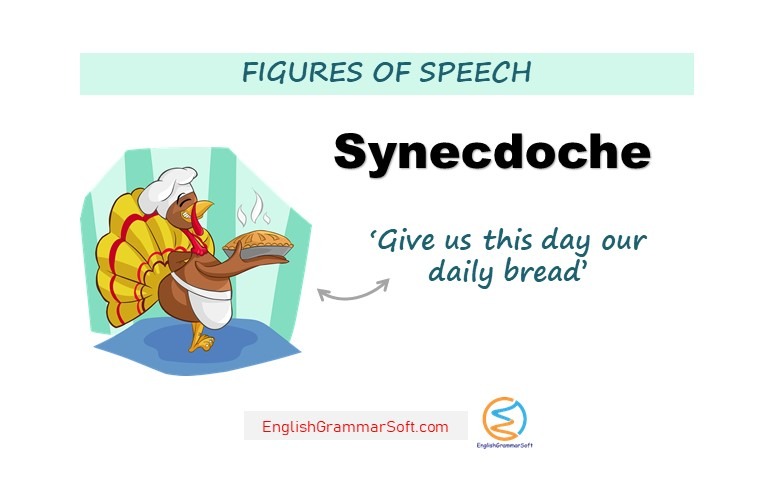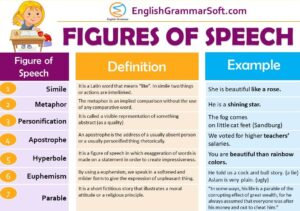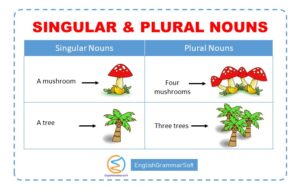Synecdoche Examples in Literature (Literary Devices)
What is Synecdoche?
Synecdoche is a figure of speech in which the whole represents just one part. This can be done with personification and metaphor as well. For example, when we say “the White House,” we are referring to the building that contains all of the offices for government officials such as the President and Vice-President. We could also say “my wheels” instead of “my car” or refer to an entire type of animal as in “a herd.”
Synecdoche is important because it makes communication more efficient by being able to use just one word or phrase rather than using many words or phrases. It’s also really helpful for people who have trouble understanding complex ideas because they can quickly grasp what it means. This type of rhetorical device is often employed by writers and poets who want to create more vivid imagery in the minds of readers.
Synecdoche was first used in the 15th century.
Synecdoche Definition
- A literary device in which a part of something represents the whole, or it may use a whole to represent a part.
- A figure of speech in which the part stands for the whole, and thus something else is understood within the thing mentioned.
Synecdoche Examples
- ‘Give us this day our daily bread’. (In the above sentence, ‘bread’ stands for the meals take each day.)
- ‘Chelsea won the match’. (Here Chelsea stands for the Chelsea Football Team.)
- I need to use all my fingers.
- They’re feeling sick to their stomach.
- Your words are representative of your thoughts.
- The White House said today that the President will not be attending this year’s G7 Summit in Canada.
- All of the president’s men.
- Hands Across America helped raise money for the homeless.
- He has not saved a cent.
Synecdoche Examples in Literature
In Shakespeare, Sonnet 116
O no! It is an ever-fixed mark
That’s looks on tempests and is never shaken.”
(The phrase “ever-fixed mark” refers to a lighthouse)
In Ye Mariners of England by “Thomas Campbell’s”
With thunders from her native oak,
She quells the flood below.
In these lines, ‘oak’ represents the warships as well as the material from which they are made.
“I should have been a pair of ragged claws Scuttling across the floors of silent seas.
“The Love Song of J. Alfred Prufrock” by T.S. Eliot
The above quote is meant to tell us he should‘ve been a crab, which makes sense since a crab is viewed as a creature that keeps to itself.
“Take thy face hence.”
MacBeth by Shakespeare
The speaker is not telling the person at whom it’s commanded to take just their face to a different location, they’re saying that they want someone to go somewhere else altogether. The word “face” is used to refer to the addressee’s entire body.
Forms of Synecdoche
The figure includes the following:
Naming the Part for the Whole; as
“It chanced a gliding sail she spied,” i.e. passing ship.
All hands were at work (men)
They sought his blood (life)
In these examples, the part chosen is what concerns the end in view. A workman’s efficiency depends on his hands and the blood is supposed more particularly identified with life.
The whole for the part; as
The lavish moisture of the melting year (summer)
Thine the full harvest of golden year’ (i.e. autumn)
The smiling year (spring) has come with all its beauty and blessings.
It was America that carried off the much coveted Tennis Trophy.
Material for the thing made; as
He gave the beggar a few coppers (pice made of copper) to get rid of him.
A foeman worthy of his steel (sword).
The marble (the statue made of marble) speaks.
The canvas (oil painting) glows.
He was buried under this stone (this tablet made of stone).
An Individual for a Class:
One variety of Synecdoche known as Antonomasia occurs when the name of a person well-known for some characterizes is taken the class name for those possessing the characteristic.
The Antonomasia puts an individual for the Species.
He is the Solomon (wisest man) of his tribe.
Kalidas is the Shakespeare (greatest dramatist) of India.
He is no Demosthenes (orator).

Further Reading
- Metonymy vs Synecdoche
- Figures of Speech with Examples
- Antithesis Examples in Literature
- Euphemism Figure of Speech
- What is a simile in literature? How to write a good simile?
- Types of Metaphor with Examples
- Apostrophe as a Figure of Speech
- Personification with Examples
- Hyperbole Definition and Examples
- Fable Meaning and Examples in Literature
- What is Epigram in Figure of Speech?






